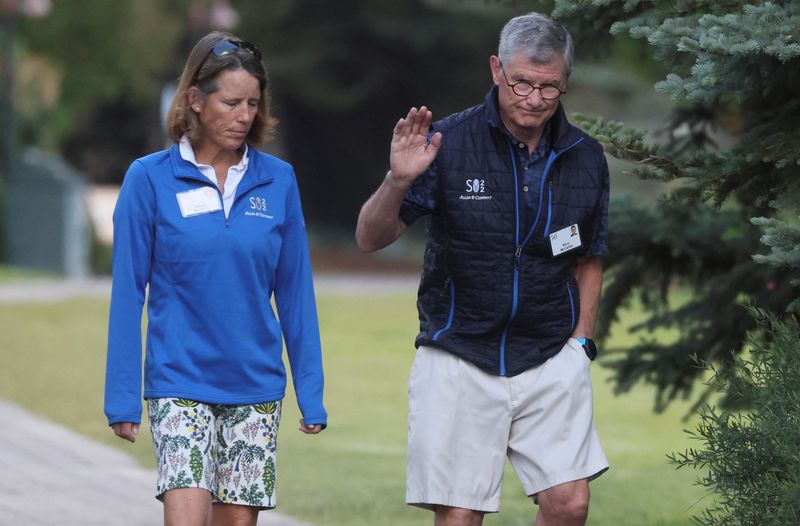By Kannaki Deka
(Reuters) -Peloton CEO Barry McCarthy, who was tasked in early 2022 to stem the fitness equipment maker's slide in sales from the pandemic highs, has quit as the company announced job cuts to reduce costs after posting weak results.
Its battered shares fell 12% as Wall Street analysts doubted the growth prospects of the company that went public in 2019 but was yet to turn a profit.
On Thursday, Peloton (NASDAQ:PTON) reported smaller-than-expected quarterly revenue and cut its full-year forecast slightly amid dwindling demand for its stationary bikes and treadmills despite price cuts.
A former Netflix (NASDAQ:NFLX) and Spotify (NYSE:SPOT) executive, McCarthy took the helm from co-founder John Foley after the company struggled to maintain the breakneck growth that propelled its valuation to $52 billion in early 2021.
Investors had cheered his appointment in February 2022 by sending Peloton shares up 30%. In the subsequent months, McCarthy cut jobs, reduced retail presence and announced partnerships with Amazon.com (NASDAQ:AMZN) and Dick's Sporting Goods (NYSE:DKS) to sell the bikes online.
He also led a rebranding push to make Peloton a software-focused company, leaning on its exclusive content to drive subscriber growth.
But demand remained weak after the pandemic as customers returned to gyms and also cut back spending due to elevated inflation and rising borrowing costs.
That prompted Peloton to push back its goal of returning to positive cash flow. As of March 31, it had cash and cash equivalents of $794.5 million.
"Somebody needs to acquire them because at this rate I don't even know if this company will still be a company on its own in the future," Paul Cerro, Chief Investment Officer at Cedar Grove Capital Management said.
Peloton said on Thursday it would cut its global headcount by 15%, or about 400 employees, and further reduce its retail footprint.

Peloton chairperson Karen Boone and director Chris Bruzzo will serve as interim co-CEOs, while it looks for a new CEO. It also named director Jay Hoag as the chairperson of the board.
The company posted third-quarter adjusted loss of 43 cents per share, compared with expectations of 37 cents loss and said it expects to deliver "modest positive" free cash flow in the current quarter.